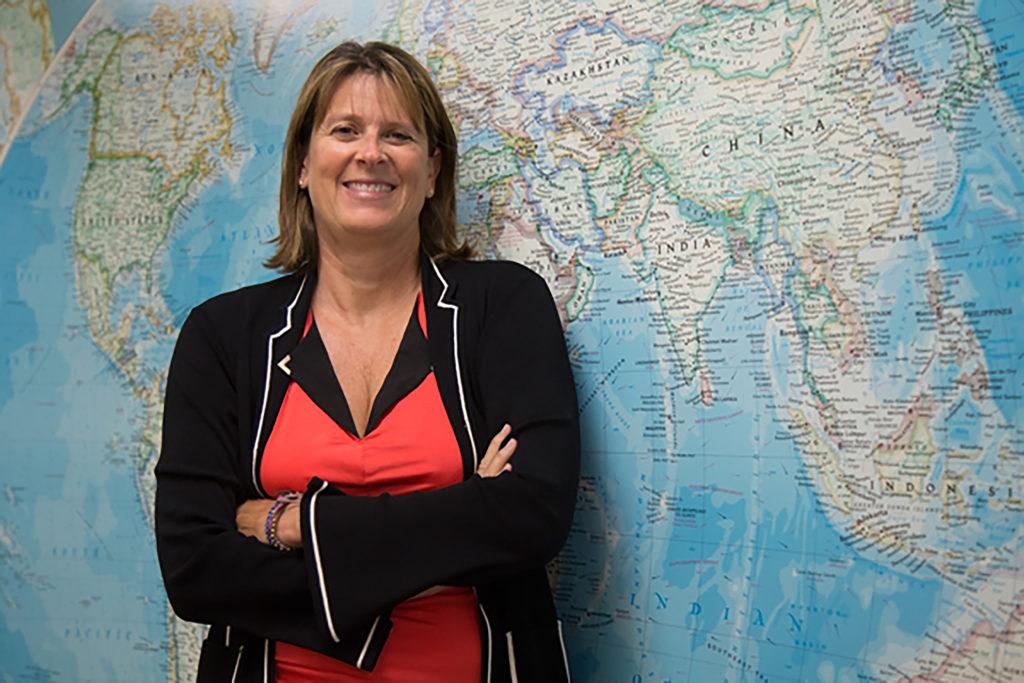Geography department faculty launched a Bachelor of Science degree program in environmental and sustainability science this fall in response to growing interest from students in the area over the past few years.
Faculty said students in the major will develop skills in earth sciences and ecological management for careers like environmental sustainability planning and policy. They said they are “excited” about the major, which they said was created as an additional path for students to the existing Bachelor of Arts in environmental studies program and builds on the sustainability minor through a more science-based study of the environment.
Melissa Keeley, the director of the environmental and sustainability science program and an associate professor of geography, said student interest in the science side of the environmental studies program sparked the development of the program. She said many students had already completed the requirements for the new major under the existing bachelor’s program so faculty decided to create a separate degree for those students.
“This meets a need that existed and students were wanting this kind of an option so it meets students’ interests and that’s what we wanted,” Keeley said.
The program combines the courses from the department’s existing bachelor’s programs in geography and environmental studies with a variety of science courses like Introduction to Sustainability and Introductory Biology, according to the department’s website.
Keeley said the major has two concentrations, one in earth and environmental sciences and one in ecological management. She said the major is interdisciplinary, including classes from about eight departments like geography, physics and chemistry and electives in classes like Conservation Biology, Water Resources and Oceanography.
“They are most interested in the science side of the environmental studies program,” Keeley said. “That was always their interest so it just makes a lot of sense to them. I think we are seeing students who have strong interest in the sciences but are drawn to the ability to take classes across disciplines.”
Lisa Benton-Short, the chair of the geography department, said the program will provide students with the types of skills required for understanding and solving “critical issues” like climate change and biodegradable diversity. She said the program will “translate” well into a world that is facing a demand for environmental sustainability.
“It’s also important to have a STEM degree particularly in some of the areas where the physical science and environmental science side demands more quantitative approach to problem-solving,” Benton-Short said.
She said Keeley led the push along with faculty members in other departments to design the major. Benton-Short said after hearing student demand for the major, faculty from the department worked to create an “innovative” program.
“We pride ourselves on knowing our students really well and having a fantastic, engaged, intellectual community,” she said.
Benton-Short said the department is “enthusiastically” awaiting applicants to the new major.
Jason Brown, an adjunct professor of geography, said he hopes students in the new major take courses like Introduction to Remote Sensing because of its usefulness in other fields outside of geography like agriculture and emergency and disaster management.
He said studying remote sensing helps prepare students for jobs in environmental and sustainability science by giving them a “foundation” in understanding how the environment changes.
Brown said the geography faculty are “very knowledgeable” because of their specialities and disciplines.
“They’re all well published so I would have to say that GW has an outstanding faculty,” he said.
Tommy Gray, a junior majoring in environmental and sustainability science, said they previously pursued international affairs, astrophysics and environmental studies majors before “officially” declaring a major in the new bachelor’s program this semester. They said the new major combines the two subjects they enjoyed the most, quantitative science and humanities.
“I feel like that’s the word of the decade right now is interdisciplinary,” Gray said. “We’re in a time where we’re starting to realize that all these separate fields that have all these barriers between them need to start being torn down.”
They said they weren’t sure if they were going to graduate on time because of their multiple major changes, but Keeley suggested that switching to the new major would make it “easier” for them to finish on time because they already completed many of the courses required for the major.
“Hopefully, that will draw a lot of even more intelligent people to the major and to that field because we need it,” they said. “We need people in environmental sciences and environmental studies and geography.”








